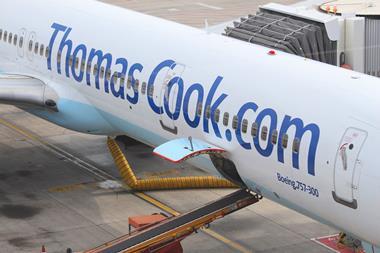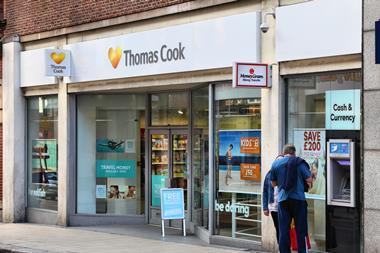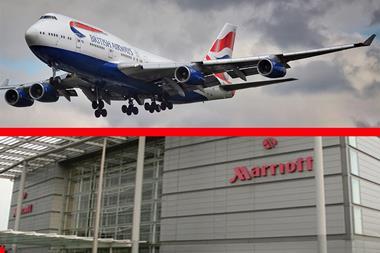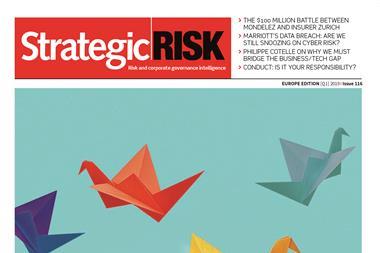In the sharing and on-demand economies, customers have the upper hand, and they are using this to drive prices down and standards up. Companies must be proactive as they enter a whole new world of risk.
France’s PSA Group, manufacturer of the Peugeot, Citroen, Opel and Vauxhall marques, is one of the latest automotive giants to jump into the sharing economy.
In October, PSA raised the stakes in its fight against the likes of Uber and Lyft when it rolled out its Free2Move car-sharing service in Washington, DC. At once, Free2Move put 600 vehicles, available 24/7, into the capital. The automotive giant has full control of the service – it will own and manage Free2Move in the city.
Previously, PSA Group had worked with a variety of other transport-sharing operators. Already active right across Europe, Free2Move is available in 12 countries with a fleet of cars, vans, scooters and bicycles, and lists 1.5 million users. Madrid alone is home to 180,000 clients, according to the company.
Consumers in the driving seat
PSA’s strategy reflects very closely what consultants McKinsey outlined in a briefing two years ago called ‘The Economic Essentials of the Digital Strategy’. Namely, consumers are now holding the cards. “By embracing technology and connectivity, today’s consumers use apps and information to find exactly what they want, as well as where and when they want it – often for the lowest price available,” McKinsey pointed out at a time when the rise of Uber was shocking the transport giants.
As McKinsey adds, companies that fail to appreciate the new-found power of the consumer are heading for trouble. Its analysis cites several vulnerabilities in traditional business models that make them ripe for disruption. In short, the clock is ticking for companies unprepared for the sharing and on-demand revolution.
More than ever, risk managers must have their finger on the pulse when it comes to competition risks, particularly from disruptive innovators, says Patrick Smith, global business resilience consultant at on-demand food delivery company, Deliveroo: “Every company in every industry is on some kind of transformation journey. Some lead from the front, some organisations are brand new and some will be hundreds of years old with the entrenchment that this suggests. But the economic revolution dictates that doing business the way that we’ve always done it doesn’t work anymore.”
“When we live in a world of ultimate consumer choice, in a social environment driven by technology, being slow to change can’t work. If your business model does not continually adapt and flex, it will be called out.”
For traditional corporates, this could mean digitalising operations for the benefit of consumers – a trend often referred to as digital transformation. Indeed, on-demand and sharing-economy companies, whose business are built on digital and mobile applications, have shown that going digital really pays off. If you needed convincing, the growth of five key sharing economy sectors – automotive, hospitality, finance, staffing and media streaming – is projected to rise from $14 billion to $335 billion by 2025, according to PwC.
There are huge sums at stake for these companies, and so the risks must be well managed.
An insurance headache
“The sharing economy gives rise to new risks and unique insurance challenges,” warn Jose Heftye, managing director and sharing economy practice leader at Marsh and Robert Bauer, AIG’s managing director, commercial innovation and head of its sharing economy practice group, in their definitive analysis of the phenomenon. And, as they report, this means a lot of headaches for the insurance industry.
In their report ‘Insuring the Sharing Economy’, Heftye and Bauer cite risks such as uncertainty over who pays the medical bills for an injured freelancer such as an Uber driver, or paid time off for bereavement or disability, and other events that are traditionally covered by employee compensation schemes. In 2016, for example, French ride-sharing drivers went on strike over working conditions amid accusations that their companies did not provide any insurance coverage. (For more on how Patrick Smith is tackling this particular issue with Deliveroo, see page 15.)
“Here’s a very practical example about gaps in insurance coverage,” Bauer says.
“If you’re an independent contractor offering services on a ridesharing app, and you’re driving on your own without your app on, it’s pretty clear that your personal insurance would cover an accident. On the other hand, if the app is on and you’ve got a paying customer in your back seat, most likely the rideshare company is on the hook for that.
“But there’s a whole lot of ‘what ifs’ that happen in between. What happens when the app is on and it’s looking for a rider? Are you ‘working’ or are you ‘driving to work’? This is the messy part in the middle that insurers are figuring out now.”
This is where strong risk management is critical. “I work on certainty first,” says Smith. “It is my job to understand the risks better than anyone.”
He adds: “Deliveroo takes risk knowingly, day in, day out. Every organisation, whatever their business, takes risks, so it is no less important for on-demand and sharing economy platforms to have very rounded sensible conversations about what risks should be absorbed, avoided and transferred. Understanding the risks and having cohesive plans is key to resilience.
“I have found that discussing traditional risk management concepts in a jargon-free way and using the language and metrics that the organisation uses is key; and progressive for both of us.”
And for the risks that need to be transferred to the market, risk managers will need to work with their insurer on building bespoke policies, because they are in their infancy.
“Insuring the sharing economy is more like playing chess than checkers,” says Bauer. “Pricing models are being constructed with loss history that is just beginning now. Some types of insurance remain highly regulated. Lines between personal and commercial insurance are blurred -– based on mixed use of assets and labour. Regulators are open to new ways of thinking, but they are also just catching up.”
Through its fingers
And yet, while prime for growth, on-demand start-ups are not immune to insolvency risks. For starry-eyed proponents of the sharing economy, the demise of Autolib’ in Paris serves as a cautionary tale. An electric car-sharing service launched in late 2011 by the Bolloré conglomerate amid great enthusiasm, it ran up debts approaching €300 million, according to the parent company, and in mid-2018 the Paris authorities refused to extend its licence.
By the time Autolib’ shut down, it had 4,000 cars available at more than 1,100 self-service docking stations positioned in the city and surrounding suburbs, but was losing money hand over fist.
According to Autolib’, it fell foul of a rejuvenated taxi service. Lately, nimble fleets of mini-cabs have provided an Uber-like service, promising a ride within ten minutes at a fixed charge, regardless of traffic congestion. An alternative reason cited by some for the car-sharing service’s failure was the deteriorating state of the cars, which were often left dirty and untidy. They were also used as beds by the homeless.
Reading between the lines, Autolib’ lacked the managerial resources and financial depth to run its car-sharing company. And the travails of Uber’s former chief executive Travis Kalanick, now sitting on the board, illustrate how some start-ups lack the professionalism embedded in old-economy companies. As the automotive giants such as PSA fight back, they must not make the same mistakes.




















No comments yet